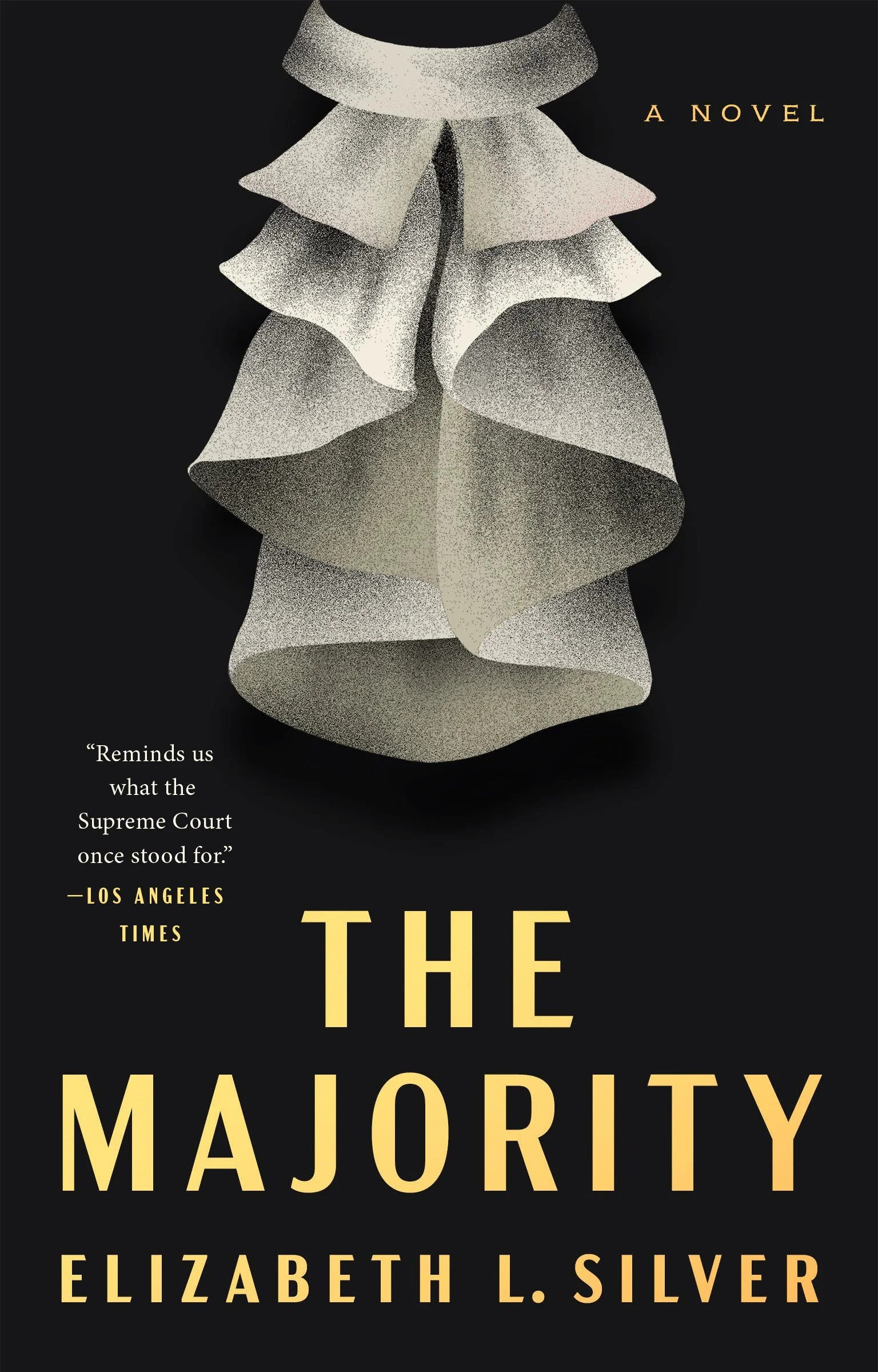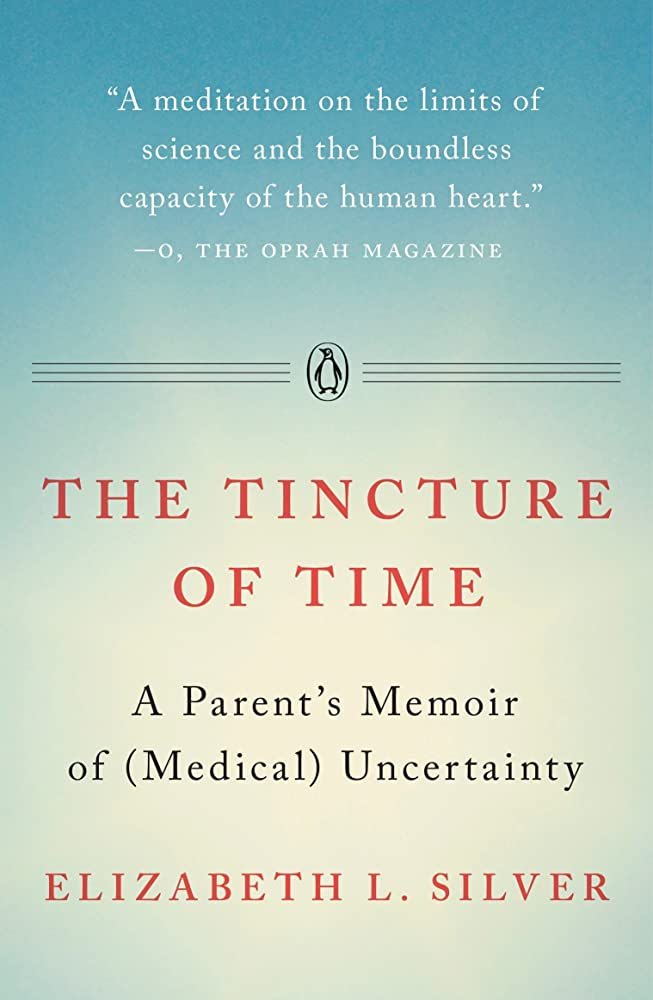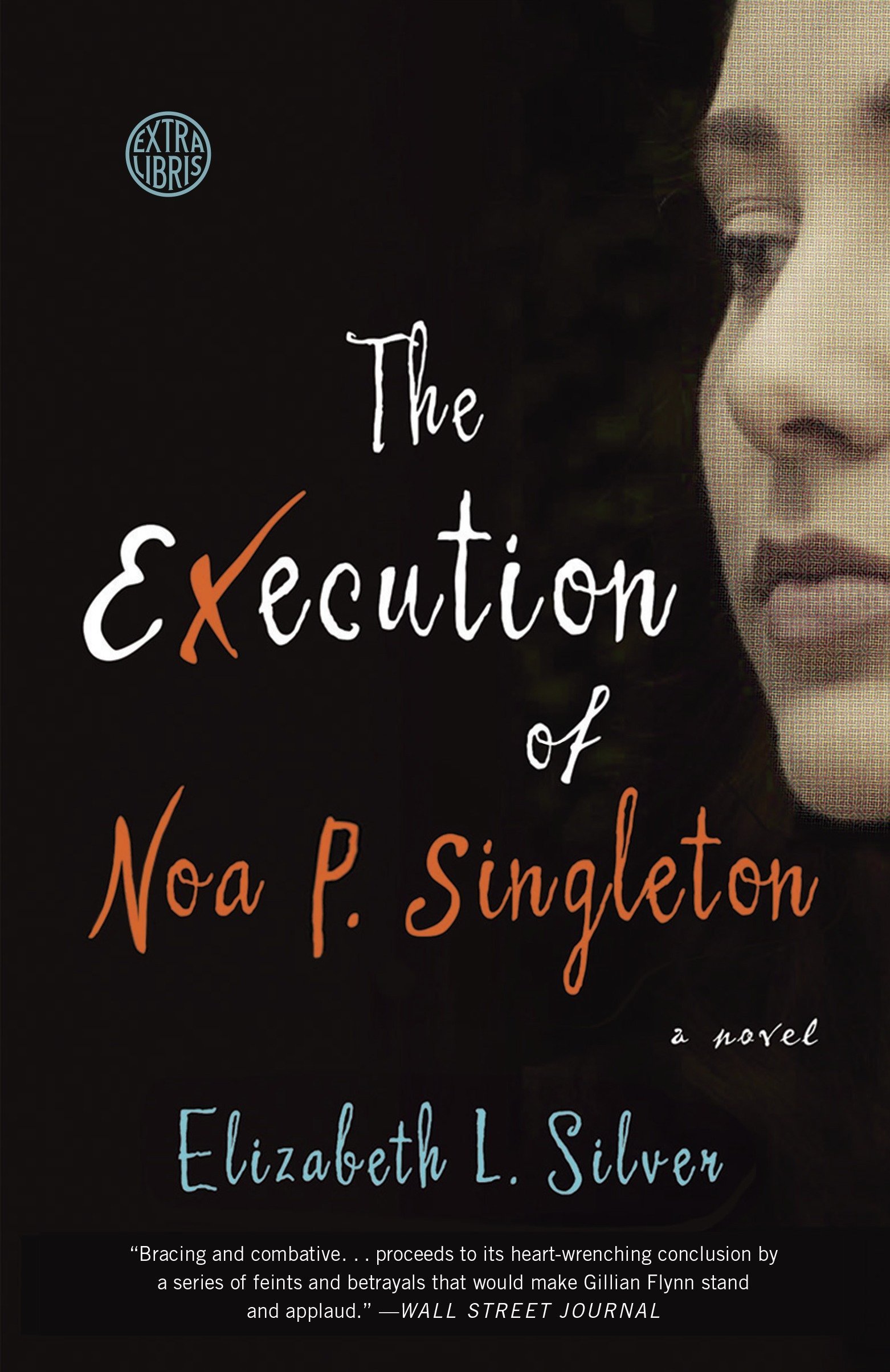Book Club Visits
Invite Elizabeth to your book club!
Reading Group Guides
Click the buttons to download Reading Group Guides or read the Discussion Questions below:
The Majority
1. The Majority is a novel about one woman’s journey to be a Supreme Court justice. It explores tensions between love and ambition, career and family, progress and patience. Which elements spoke to you most strongly?
2. As Sylvia Olin Bernstein tells the story of her life beyond her career, she offers an intimate account of her childhood in Brooklyn. How do her experiences as a child shape her beliefs about right and wrong? In what ways does the loss of her mother affect her path?
3. When Mariana, a Holocaust survivor, moves in with the Olins, Sylvia’s life is forever changed. How is Mariana’s influence on Sylvia different from that of her mother? How does Mariana’s experience affect Sylvia’s views? Sylvia says that she may never have been a Supreme Court justice if she hadn’t known Mariana—why do you think that is?
4. As a young girl, Sylvia stands up to a rabbi who is following traditional practices that Sylvia believes unfairly exclude women. Why do you think she feels comfortable challenging him? What does this show about her character and her early sense of justice?
5. After college, Sylvia becomes one of only nine women at Harvard Law School. There she meets James Macklowe, who teaches constitutional law and considers himself a champion of those nine women. The first epigraph of The Majority is a quote from the famous abolitionist and suffragist Sarah Grimké: “I ask no favor for my sex. All I ask of our brethren is that they take their feet off our necks.” Consider that quote in relation to James Macklowe. In what ways does he support women? In what ways does he hold them back?
6. During Sylvia’s internship with a public defender, she is held in contempt of court when she tries to give voice to a victim of domestic violence, a young mother named Amy McCartney. How does this act resound over the course of her career?
7. Joe Bernstein and Sylvia begin a relationship while they are both at Harvard, and Joe eventually becomes a devoted spouse and father. Do you think he helps Sylvia’s career or hinders it? What does he give up for her and vice versa? What does her ambivalence about motherhood tell us about the challenges she faces in terms of realizing her ambition?
8. Sylvia’s involvement in Alma Álvarez v. Finger Lakes Independent School District and the subsequent passage of the Pregnancy Discrimination Act shows that even when a justice holds a minority opinion on the court, that opinion can be used to help pass meaningful laws in the future. And, in various ways, most characters in the novel are dissenters who go against the tide. What do you think the novel is saying more broadly about the importance of dissent? What does it take to be effective at dissenting?
9. Discuss Sylvia and Aviva’s complicated relationship. Who turns away from whom, and why? What does their estrangement cost them, and what, finally, enables their reconciliation? What factors make it difficult for Sylvia to be completely honest with Aviva? Do you think Sylvia should have behaved differently regarding her daughter?
10. When Sylvia is a girl, her mother tells her to “change the system from the inside out if you want it to last.” How does this idea resonate with Sylvia over her many decades as a lawyer and then as a justice? Which characters challenge it?
11. Linda Loving is Sylvia’s close friend, but for decades there has been a secret between them. Why does Linda hide the truth from Sylvia? What do Linda and Sylvia’s relationship and their diverging careers show about the difference between how the world treats white and Black women? Do you think Sylvia is a good friend to Linda, despite her blind spots? How does Linda’s revelation complicate Sylvia’s ideas about what is possible?
12. Sylvia writes, “History is only as good as the historians, and I’m no longer trusting them to tell my story.” Why does she decide to tell her story near the end of her life? What does she think the public needs to know from outside the official record? What does she hope readers will take from her story?
13. Does The Majority make you think differently about the women and men who serve on the Supreme Court? How do you see the Supreme Court changing—if at all?
The Tincture of Time
1. What does the word “uncertainty” mean to you? What about uncertainty in a specifically medical context?
2. The book is divided into three parts: Acute, Sub-acute, and Chronic Uncertainty. How does this structure inform the narrative?
3. Memory—in particular, its mutability—is a theme that runs consistently through the book. Can you think of an event or period that you and a loved one have remembered entirely differently? What is your way of keeping the memory of particular events or people alive?
4. What was your reaction to the scenes in which a social worker asks Elizabeth and her husband a series of sensitive questions about their care of Abby (pp. 49-52)? If you were the social worker, how might you have gone about getting answers to these questions? If you were the parent, how might you have reacted?
5. How does feminism play into the narrative? Does gender make a difference in medical situations or situations of trauma in general?
6. Elizabeth writes at length about her feelings of guilt with respect to Abby’s injury. How much does guilt play into our decisions as parents in and out of medical contexts?
7. What do you make of the role that religion plays in this narrative, particularly the scene of the Jewish “bake sale” (pp. 107–114)?
8. Writing about Abby’s trauma and treatment was an important coping mechanism for Elizabeth. What are the different strategies you use to cope with challenging or painful situations?
9. How much do you rely on statistics in medical contexts? Do you find that they hurt or help?
10. Elizabeth is conflicted about the idea of describing Abby as a “survivor.” What does that word mean to you, and how might it affect one’s sense of self?
The Execution of Noa P. Singleton
Please note: In order to provide reading groups with the most informed and thought-provoking questions possible, it is necessary to reveal important aspects of the plot of this novel—as well as the ending. If you have not finished reading The Execution of Noa P. Singleton, we respectfully suggest that you may want to wait before reviewing this guide.
1. Do you believe in the death penalty? Did your opinion about the death penalty change after reading this novel?
2. How did Noa’s self-professed guilt impact how you felt about her as a character?
3. Do you believe Marlene ever intended to submit the clemency petition? What do you think her motivation was all along, or did it transform as the novel progressed?
4. How does Noa’s view of Marlene change over the course of the novel? Do you think Noa respects, fears, or pities Marlene more than she hates her?
5. Why did Caleb not help Noa at trial? What was so important to him that he wouldn’t risk disclosing Marlene’s involvement? Is he weak and selfish, or simply unable to understand the ramifications of his actions? Does Noa regret her relationship with him?
6. Noa does not help a great deal with her appeals, although she did push forward with a defense at trial. Why do you think Noa decided not to fight for her life once the trial was finished?
7. On page, 79, Noa talks about earning your own failures when she says, “Failure is not something you can impress upon another. It is something earned, something realized with piquant reward.” Do you agree? Why or why not?
8. On page 244, Noa says, “A nation that prides itself on equality treats its victims ever so inequitably in ritual.” She is referring specifically to capital punishment, but what else can this apply to? How does this statement represent America, if at all?
9. There is a noticeable lack of religion in the novel. Was this intentional? Why do you think the author has avoided discussions of religion, which seem to be quite common with death row inmates or individuals close to death?
10. On pages 306–307, Marlene says that “apologies are really just little weeds that grow over monuments and headstones. They keep coming back, but never stop ruining what lies beneath. If an apology is truly authentic, the pain is supposed to stop. Right?” What do you think this means? Do you agree with her? Why or why not?
11. Does Marlene actually feel any remorse or guilt by the end of the novel? If so, is it enough? On page 307, she says, “I am not in the dirt beside you, no matter how much I belong.” Does this change your impression of Marlene?
12. What is the symbolism behind burying Noa’s manuscript at the end of the novel?
13. If you were on death row, what would be the three things you would miss the most? What would be your final words? What would be your last meal?
14. What do you think Marlene will do with the information she learns at the end?
15. All of the characters in The Execution of Noa P. Singleton are imprisoned in some way. With whom did you most sympathize?


